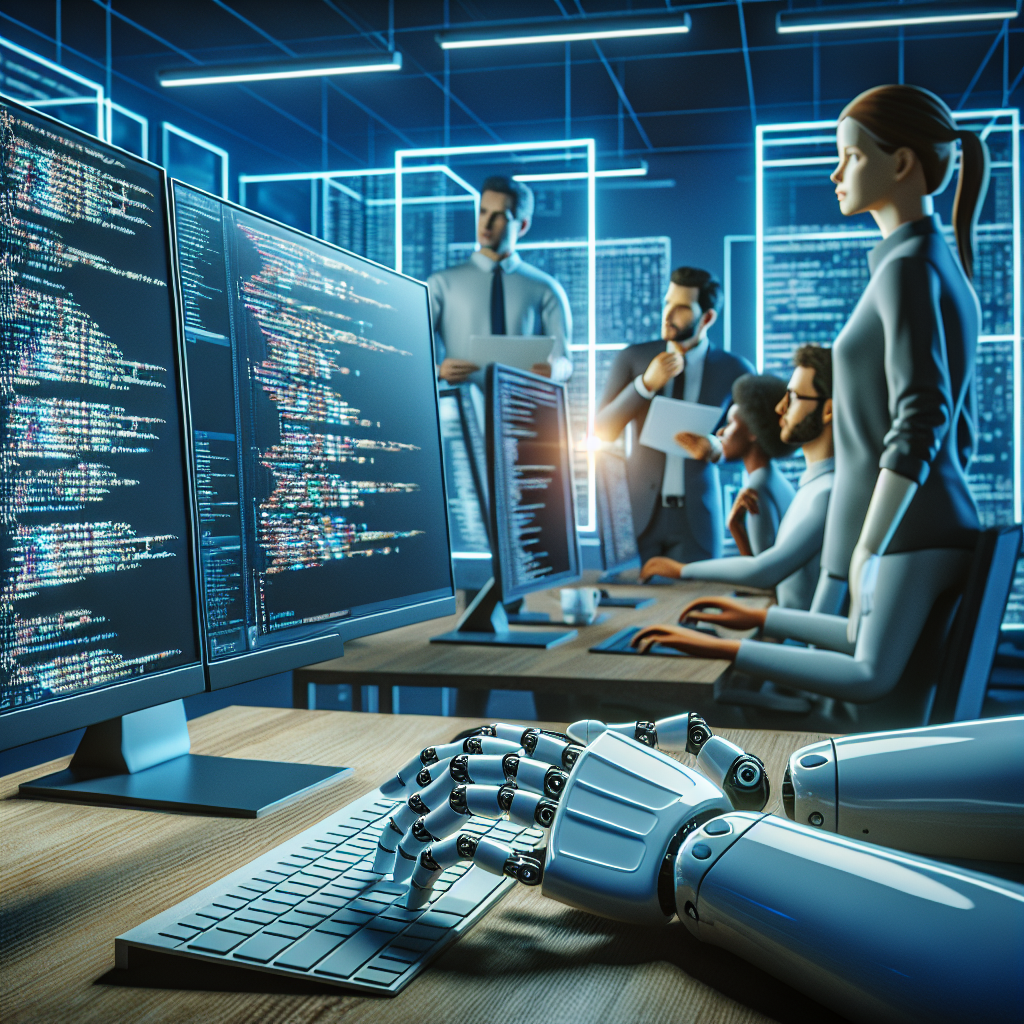Anthropic CEO: AI Will Be Writing 90% of Code in 3 to 6 Months
In a groundbreaking statement, the CEO of Anthropic, one of the leading companies in artificial intelligence (AI), has forecasted a significant shift in the technology landscape. According to the CEO, we may soon witness a future where AI will be responsible for generating up to 90% of code within just three to six months. This assertion has raised eyebrows across the tech industry and among software developers, who are eager to see how this evolution will impact coding, software development, and the broader tech ecosystem.
The Rise of AI in Software Development
The integration of AI into software development has been a topic of discussion for several years now. With advanced algorithms and machine learning models becoming increasingly sophisticated, AI technologies can now analyze vast amounts of data to create and optimize code. The prospect of AI writing code isn’t just a futuristic dream; it’s becoming a reality as more companies adopt AI-driven solutions.
This anticipated shift is not merely about convenience; it represents a transformative moment where the efficiency of coding could be revolutionized. Developers have long faced challenges such as debugging, optimizing performance, and meeting tight deadlines. The introduction of AI tools could alleviate some of these burdens, allowing developers to focus on higher-level problem-solving and innovation.
What Does This Mean for Developers?
The prediction that AI will write 90% of code in the near future may evoke mixed feelings among developers. Some might welcome the prospect of AI taking over mundane coding tasks, while others may fear job displacement.
1. Increased Efficiency: AI can automate repetitive coding tasks, significantly speeding up the development process. This means that developers can spend more time on more complex and creative aspects of software design, leading to increased productivity.
2. Skill Shift: As AI becomes more capable of handling coding tasks, developers might need to adapt their skill sets. While traditional coding skills will remain essential, there will likely be a greater emphasis on understanding AI capabilities and learning how to collaborate with these technologies effectively.
3. Job Displacement Concerns: While the fear of job displacement is valid, it’s essential to consider that AI will likely create new job opportunities as well. Roles focused on AI oversight, ethics, and enhancement will become increasingly relevant as AI takes on more responsibilities.
The Ethical Implications of AI-Coded Software
As AI systems become more involved in programming, ethical considerations arise. Questions about accountability, bias in algorithms, and the implications of AI-generated code need careful examination.
1. Accountability: If AI writes code that leads to security vulnerabilities or failures, who is responsible? Developers and companies will need to establish clear guidelines and accountability structures to address these issues.
2. Bias in Algorithms: AI systems learn from existing data, which can sometimes include biases. It’s crucial to ensure that AI-generated code does not replicate or exacerbate existing inequalities or biases present in the data it was trained on.
3. Transparency: Understanding how AI arrives at certain coding decisions is vital for building trust among users and developers. Developing more transparent AI systems will be necessary to foster user confidence.
The Future of Collaboration Between Humans and AI
As we move toward a future where AI takes on a larger role in coding, the relationship between human developers and AI will evolve. Successful collaboration between the two will hinge on a few key factors:
1. Human Oversight: While AI can handle many coding tasks, human oversight will remain essential to ensure quality and ethical standards are upheld.
2. Training and Education: Developers will need to be educated on how to effectively use AI tools. This includes understanding how AI functions, its limitations, and how to interpret its output.
3. Adaptive Workflows: Companies may need to adopt new workflows that integrate AI tools into the development process seamlessly. This could involve creating hybrid teams with a mix of traditional developers and AI specialists.
The Business Impact of AI in Coding
The implications of AI-generated code extend beyond individual developers; they have the potential to reshape entire businesses and industries. Here are a few ways AI could impact the business world:
1. Cost Reduction: By automating coding processes, companies may see significant cost savings in terms of both time and labor. This could be particularly beneficial for startups and small businesses looking to maximize their resources.
2. Faster Time-to-Market: With AI handling substantial portions of coding, products can be developed and released more quickly, allowing companies to stay competitive in fast-paced markets.
3. Innovation Acceleration: Freed from the more mundane aspects of coding, developers may focus on innovative features and improvements, ultimately leading to better products and services.
Challenges to Overcome
Despite the promising future of AI in coding, several challenges remain that must be addressed for this vision to be fully realized:
1. Quality Control: Ensuring that AI-generated code meets quality standards is crucial. This will require robust testing frameworks and validation processes.
2. Integration with Existing Systems: Companies must ensure that AI-driven tools can work seamlessly with their existing development environments and workflows.
3. Resistance to Change: Some developers may be resistant to adopting AI tools, fearing that it undermines their skills. Companies will need to invest in training and change management to facilitate this transition.
Conclusion
The prediction that AI will write 90% of code in the next three to six months marks a significant turning point in the tech industry. While the potential benefits are immense, from increased efficiency and innovation to cost savings, challenges remain that must be navigated carefully. As we stand on the brink of this new era, developers, companies, and stakeholders must embrace collaboration with AI, ensuring that the technology serves to augment human capabilities rather than replace them. The future of coding is undeniably intertwined with AI, and how we adapt to this change will shape the tech landscape for years to come.



